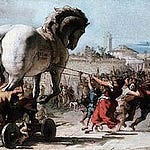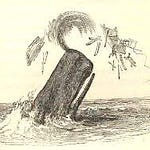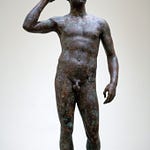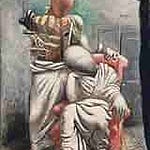I had an excellent conversation with @kingbolingbroke (his twitter handle) on Shakespeare’s Much Ado About Nothing.
I’m sure that you will find his writings on contemporary politics to be of interest and they can be found here:
King of Twitter at American Mind
That Hideous Strength Animating Joe Biden at American Greatness.
Here is a brief table of contents of our conversation:
I introduce Bolingbroke and he tells us why Shakespeare writes such good books.
I briefly summarize the play.
Bolingbroke announces the theme we will focus on: the relation of the passions and love with reason.
We discuss Benedick’s arguments against love.
We discuss Beatrice’s argument against love.
We read out loud and examine part of Act 1 scene 3 and explore Don John’s account of how reason is an instrument of the passions.
We read out loud and examine part of Act 5 scene 1 and explore Leonato’s account of how reason is an instrument of the passions (though the scene is ultimately an inversion of 1.3).
We think through the Prince’s speeches and deeds and find that while he attempts to transcend his attachment to love, he is still subordinate to it in spite of his best Machiavellian efforts.
We discuss what Shakespeare ultimately has in mind about love and its relation to reason. What does a reasonable human life look like? How reasonable can the philosopher hope to be?
We prepared an outline before and had a pre-recording conversation but both of us also discovered a number of things through our conversation. I understand the play much better in light of our conversation and I think that you will as well.
















Share this post